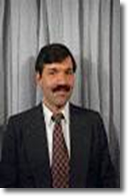El programa científico del evento consta de 3 pláticas plenarias y 99 ponencias orales distribuidas en 19 sesiones.
Pláticas Plenarias
 |
Control mediante Rechazo Activo de Perturbaciones: Perspectiva Histórica y Nuevos Horizontes |
Resumen:
El control mediante Rechazo Activo de Perturbaciones (RAP) tiene una larga historia que data desde el primer tercio del siglo XIX, en Francia, con las prescripciones prácticas del Ingeniero Jean-Victor Poncelet en el control de enclaves industriales mediante lo que él llamaba el “principio de invarianza”. El control mediante RAP consiste en cancelar en forma activa, mediante la señal de control, los efectos de las perturbaciones en las salidas del sistema, basándose bien en mediciones de estos efectos o en sus estimaciones. En resumen, este paradigma establece que es posible eliminar los efectos indeseables sobre la salida antes de aplicar la realimentación. Este método de control nunca fue formalizado matemáticamente y sin embargo fue de enseñanza común en Rusia durante la primera mitad del Siglo XX. Uno de sus máximos exponentes fue el profesor Georghe Vladimirovich Shipanov en Moscú. La aparición del método en América data desde los años 70 en los trabajos de C.D. Johnson, realizados en forma independiente de lo establecido por G. V. Shipanov. A finales del Siglo XX, la metodología del control por RAP fue profusamente desarrollada por el Prof. Jinquing Han quien además de aplicaciones académicas, logro un sinnúmero de desarrollos industriales, patentes y modificaciones al método. Solamente existe un manuscrito en el idioma Inglés del desaparecido Profesor Han, de publicación relativamente reciente, en el IEEE Transactions on Industrial Electronics (2009). En lo que va del Siglo XXI, el control mediante rechazo activo de perturbaciones ha venido sufriendo diversas transformaciones, reformulaciones y extensiones. En épocas recientes empieza a tenerse una formalización adecuada del método gracias a los trabajos de Z. Gao, H. Khalil, M. Fliess y otros investigadores.
En esta charla presentaremos un recuento detallado del método de control por RAP y sus versiones más importantes y accesibles. A la par, daremos una justificación teórica del mismo basado en una visión alternativa del problema de control automático en sistemas descritos por ecuaciones diferenciales ordinarias controladas, con o sin retardos en la variable de control. Se presentarán diversas aplicaciones prácticas del método del control por RAP, realizadas en el laboratorio, sobre sistemas no lineales como: El motor de inducción, el motor síncrono de imanes permanentes, convertidores de corriente continua, robots manipuladores, robótica móvil, sistemas de dirección por cable y control de sistemas caóticos.
Biografía:
Dr. Hebertt Sira-Ramirez is a native of San Cristobal, Venezuela. He obtained his Electrical Engineering degree in 1970 from the University of Los Andes (Merida, Venezuela). Date you became a professor at the School of Systems Engineering, Faculty of Engineering of the University. He completed his postgraduate studies at the Massachusetts Institute of Technology (Cambridga, Mass. USA) in 1974 where he held together, the titles of Master of Science in Electrical Engineer and Electrical Engineer. In 1977 he received a Doctorate (PhD) in Electrical Engineering from the Institute. Held the posts of Head of Control Systems from 1978 to 1980, the Administrative Vice Chancellor of University of the Andes during the period 1980-1984 and Head of the Graduate Faculty of Automatic Control Engineering 1992-1993.
He has been visiting professor at the University of Illinos at Urbana-Champaign (Urbana, Ill., USA), Purdue University (West Lafayette, IN, USA), the Laboratoire des Systemes et Signaux (CNRS, Gif-sur-Yvette, France), the National Institue Apliqueés Sciences (Toulouse, France), University Politecnica de Catalunya (Barcelona, Spain), University of Technology of Compiegne (Compiegne, France), Universidad Nacional del Sur (Bahia Blanca, Argentina ), University of La Plata (Argentina), the Ecole Centrale de Lille (Lille, France), Centre Automatique et Systèmes Ecole National Supérieure des Mines de Paris (Fontainebleau, France), University of Delaware (Newark, Del. USA), Laboratoire d'Automatique of Grenoble (Grenoble, France), the Ecole Politecnique (Paris, France), the Laboratoire Gage and the Ecole Politechnique Stix (Palaiseau, France).
He has published over 100 technical papers in journals of international circulation and has participated in over 160 international conferences. He has written 18 book chapters and has co-authored the books "Passivity Based Control of Euler-Lagrange Systems" (Springer-Verlag, 1998), "Differentially Flat Systems" (Marcel Dekker, 2003). Dr. Sira-Ramirez has received the Order of Andres Bello of the Presidency of the Republic in Venezuela (1993) and Tulio Febres Cordero The Order of the City of Mérida (1994).
Has received: National Engineering Award (College of Science engineers of Venezuela, Caracas, 1987), Regional Science Award (Fundacite, Mérida 1994), Science Award "Francisco de Venanzi" (Faculty of Science, University Of Andes, Mérida, Venezuela 1993) and Lorenzo Mendoza Fleury Prize (Fundación Polar, Caracas, Venezuela, 1995). It's "Distinguished Lecturer" of the Institute of Electrical and Electronics Engineers (IEEE, Newark, NJ USA) since 1993 and has been appointed to the Evaluation Committee of the National Science "Ramón y Cajal" of the Ministry of Science of Spain. Member of the Research Promotion System of Conicit-Venezuela (Level IV) and the National Research System of CONACYT-Mexico (Level III). He was Vice President of The Academy of Merida where he holds the chair No. 15 since 1995. Dr. Sira-Ramirez is a retired professor at the University of the Andes since 1998, serves as Senior Researcher at the Centre for Research and Advanced Studies of IPN (CINVESTAV-IPN, Mexico City, DF, Mexico), with the Researcher category 3-E.
 |
Aplicaciones de control a la navegación autónoma de vehículos miniatura aéreos y submarinos. Dr. Rogelio Lozano Leal Université de Technologie de Compiègne, FRANCE |
Resumen:
En esta plática se presenta el desarrollo de sistemas de navegación autónoma para aviones, helicópteros y submarinos miniatura. Se describen los modelos dinámicos comúnmente utilizados, las técnicas de control automático que se emplean para la estabilización y el seguimiento de trayectorias predefinidas, así como los actuadores y sensores con los que se cuenta en la actualidad. Se presenta el estado del arte sobre los vehículos no tripulados aéreos y submarinos y las líneas de investigación futuras.
Biografía:
Rogelio Lozano was born in Monterrey Mexico, on July 12, 1954. He received the B.S. degree in Electronic Engineering from the National Polytechnic Institute (IPN) of Mexico in 1975, the M.S. degree in Electrical Engineering from CINVESTAV-IPN, Mexico in 1977, and the Ph.D. degree in Automatic Control from LAG, INPG, France, in 1981.
He joined the Department of Electrical Engineering at the CINVESTAV, Mexico, in 1981 where he worked until 1989. He was head of the Section of Automatic Control from June 1985 to August 1987. He has held visiting positions at the University of Newcastle, Australia, from November 1983 to November 1984, NASA Langley Research Center VA, from August 1987 to August 1988, and LAG, France, from February 1989 to July 1990. He is a CNRS Research Director since 1990. R. Lozano was Associate Editor of Automatica from 1987 to 2000 and of Int. J. of Adaptive Control and Signal Processing since 1993. He was head of the Laboratory Heudiasyc, UMR 6599 CNRS-UTC from January 1995 to December 2007.
Since April 2008 he is the head of the UMI 3175 LAFMIA at CINVESTAV Mexico, which is a joint research laboratory founded by CNRS, CINVESTAV and CONACYT. He is author or co-author of 86 journal papers, 164 conference presentations and 5 Springer-Verlag books in the areas of control and observers for non linear dynamical systems, adaptive control, passive systems, modelling and control of small UAV and localization of UAV using vision systems or radio signals. He has been the advisor or co-advisor of a total of 20 Ph.D. students, including 10 in the domain of UAV since 1997. One of his students (B. Brogliato) received the prize of the best Ph.D. thesis at INPG in 1992 and another student (P. Castillo) received the prize of the best Ph.D. thesis in Automatic Control in France in 2005 given by the EEA Club. He has lead two teams in 2005 and 2009 at the ONERA-DGA Mini UAV International Contest. He is the leader of a project supported by the French Army (DGA) concerning vertical take-off and landing airplanes. He participates in a project supported by the FRAE (Aeronautical and Space Research Foundation) on navigation using optical flow. He is the leader of several research projects concerning UAV in collaboration with the Jules Verne University in Amiens supported by the Picardie Region.
 |
Control of Distributed Conventional and Renewable Energy Systems: System of Systems Based Intelligent Management of Micro-Grids Dr. Mo Jamshidi |
Resumen:
Sustainable energy has slowly but surely becoming relevant source of energy in many parts of the world. From Americas to Europe to Asia and South Pacific and on to Middle East, photovoltaic and wind energies are the desired sources. Such new and expanded sources of energy is fast creating numerous sources of distributed generations and creating a great number of micro-grids of energy. However, intermittency nature of both of these sources would make it very difficult to rely on for instantaneous need for electricity in urban or rural areas.
In this presentation, fundamental aspects of cyber-physical systems (system of systems) will first be discussed and then a management scheme for microgrids will be presented based on a Fuzzy Logic-based framework is proposed for control of Battery Storage Unit in Micro-Grid Systems to achieve Efficient Energy Management. Typically, a Micro-Grid system operates synchronously with the main grid and also has the ability to operate independently from the main power grid in an islanded mode. Distributed renewable energy generators including solar, wind in association with batteries and main grid supply power to the consumer in the Micro-Grid network. The goal here is to control the amount of power delivered to/taken from the storage unit in order to improve a cost function, defined based on summation of payment required for purchasing power from main grid or profit obtained by selling power to the main grid and distribution power loss, through reasonable decision making using predetermined human reasoning-based fuzzy rules. Profiles of system variables such as Consumer’s Load Demand, Electricity Price Rate, and Renewable Electricity Generation Rate are assumed arbitrarily for obtaining general results. Measures of payment/profit will be extracted to compute amounts of cost and balance for the network which represents benefits of using Fuzzy logic for Storage Unit control with and without considering storage unit capacity limits. Simulation results are presented and discussed.
Biografía:
(Fellow IEEE, Fellow ASME, A. Fellow-AIAA, Fellow AAAS, Fellow TWAS, and Fellow NYAS) is the Lutcher Brown Endowed Chaired Professor and Leader of Sustainable Energy Research Group at the University of Texas, San Antonio, TX, USA. He has served US Government (NASA, USAF and USDOE) as an advisor or scientist for 27 years. He has worked for IBM, GM and Siemens for a total of 4 years. In summer 1999, he was a NATO Distinguished Professor in Portugal conducting lectures on intelligent systems and control. He has over 650 technical publications including 63 books (11 text books), research volumes, and edited volumes. His most recent 2 edited and 1 text books are on system of systems engineering. He is the Editor-in-Chief of IEEE Systems Journal. Dr. Jamshidi is a Fellow or member of 8 societies and academies. He is the recipient of the IEEE Centennial Medal and IEEE Control Systems Society Distinguished Member Award and the IEEE CSS Millennium Award, and NASA National Service Award in 2005. He was on the Board of Governors of the IEEE Society on Systems, Man and Cybernetics and is currently on the board of the IEEE Systems Council. He is an Honorary Professor at three Chinese Universities, Deakin University in Australia and the University of Birmingham (UK, 2012-2017). In October 2005 he was awarded the IEEE’s Norbert Weiner Research Achievement Award. He is a UK Royal Academy of Engineering distinguished fellow at Cardiff University, Wales, UK in 2009-2010. He spent a one-month lecture tour in UK in summer 2009. He received the Presidential Award on Advancing Globalization at the University of Texas, San Antonio. Since 2012 he has been a member of the University of Texas System Chancellor’s Council.
Sesiones Orales
Las sesiones se desarrollarán en las Salas A y B del Centro de Educación Continua así como en las Salas Audiovisual 1 y 2 de la Biblioteca Universitaria. Con ello se tendrán hasta 4 sesiones simultáneas matutinas y vespertinas los primeros dos días del congreso y 4 matutinas más el último día del evento hasta completar las 19 sesiones que en suma abarcan 99 ponencias.